Protesters gather Uptown in opposition of Minnesota pipeline project
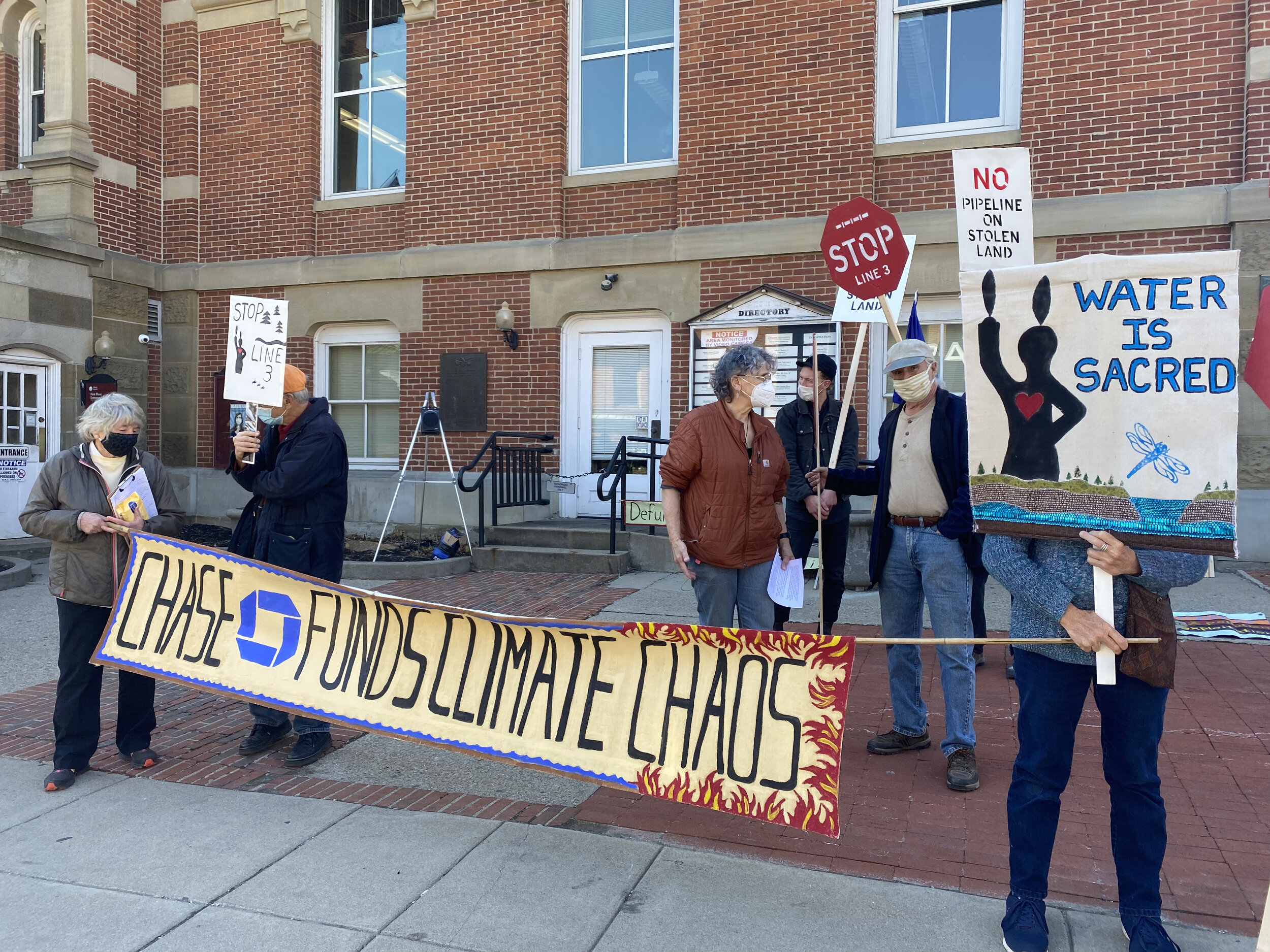
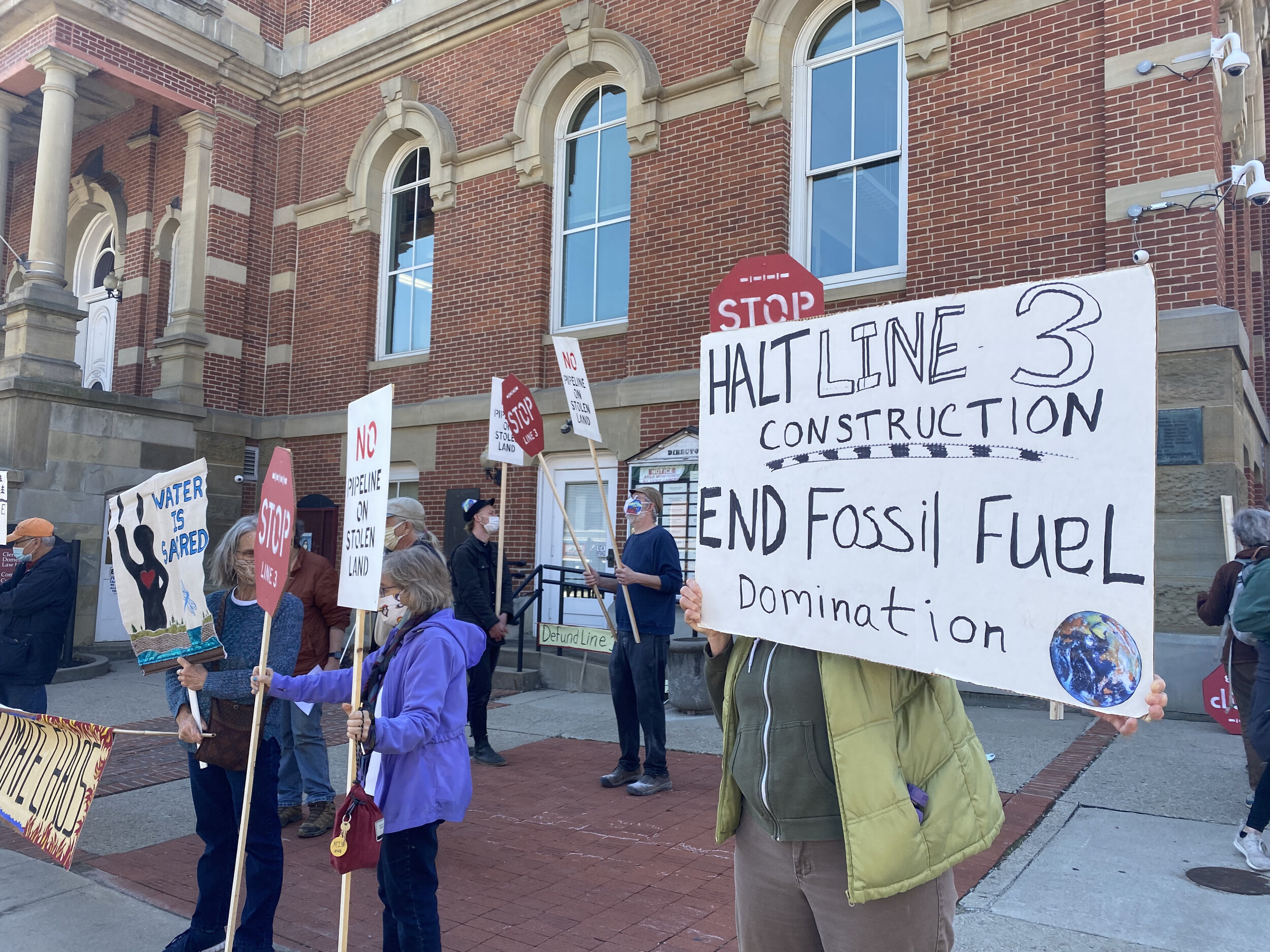
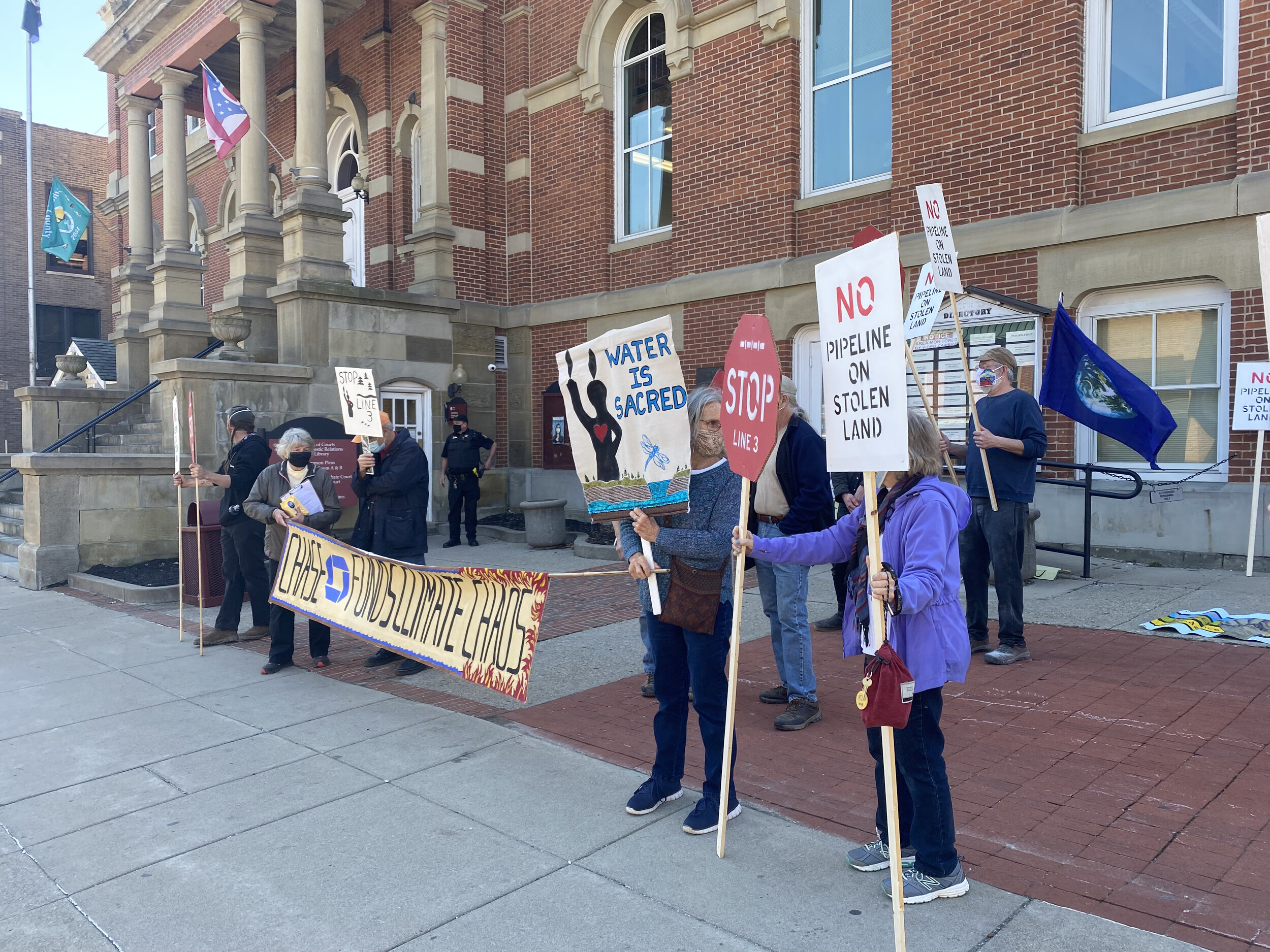
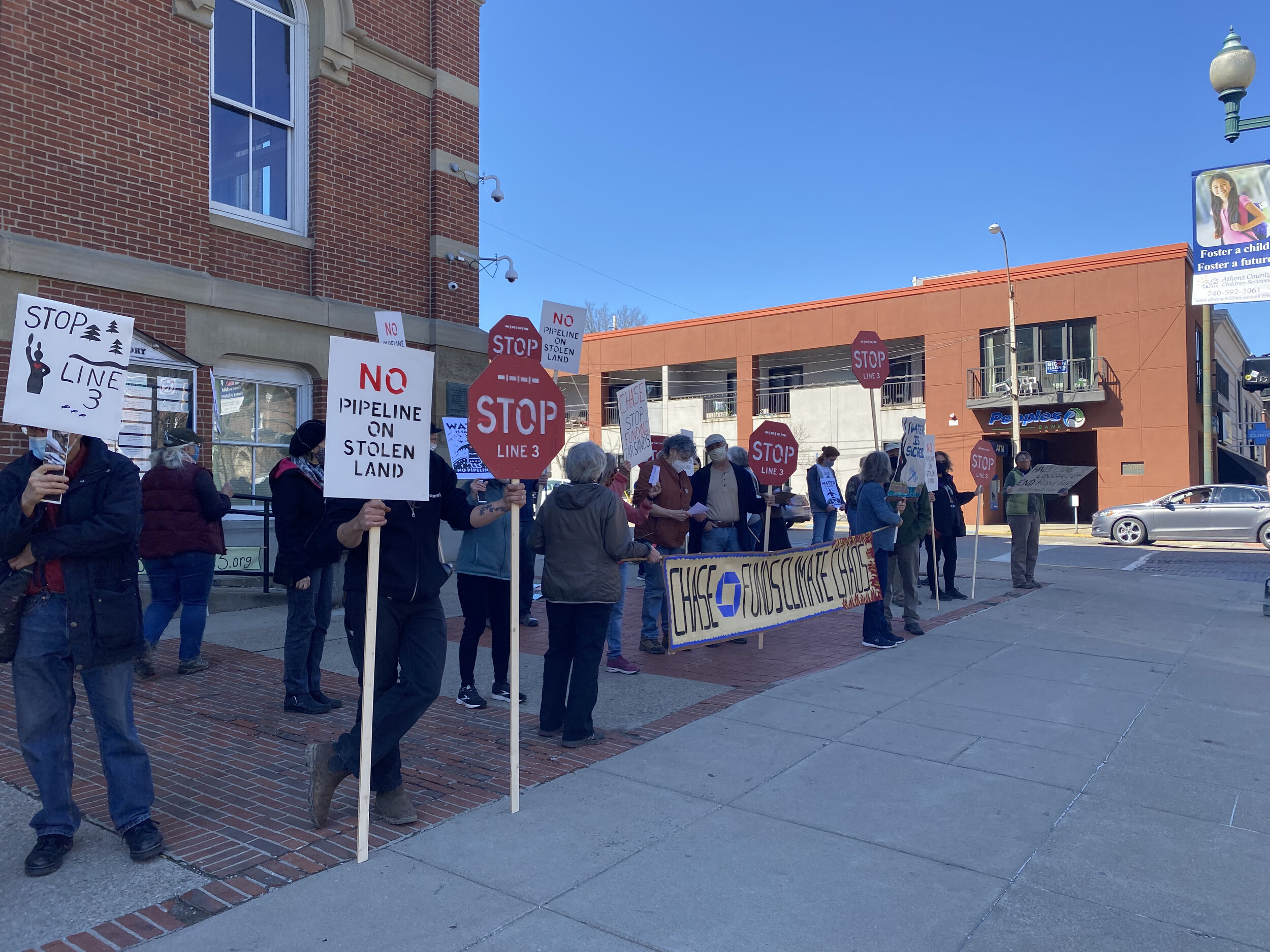
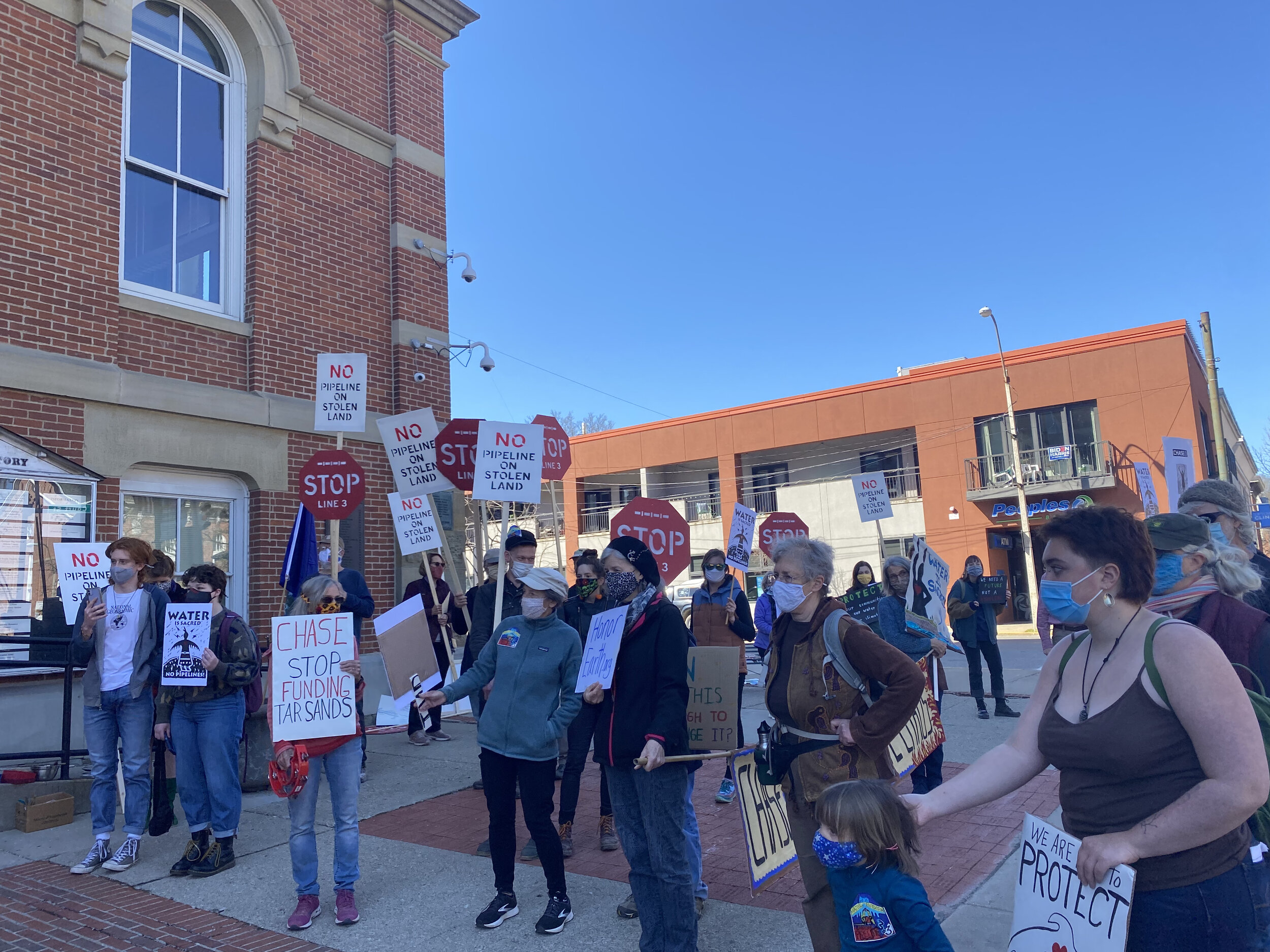
Photos by Alejandro Figueroa.
About 50 protesters gathered outside the Athens County Courthouse on Monday afternoon to oppose the replacement of a crude oil pipeline passing through Minnesota and to stand in solidarity with the Indigenous people whose land is being threatened by the pipeline, according to rally organizers.
The rally, which was primarily in opposition of Line 3 — a pipeline carrying tar sand, a type of mineral crude oil, from Alberta, Canada, to Superior, Wisconsin — was organized by the Athens County Future Action Network (ACFAN) and the Athens chapter of the Ohio Youth for Climate Justice (OHYCJ).
Julia Weber, an Athens High School senior and the Athens lead for OHYCJ, said she helped organize the rally in support of environmental justice and those affected by the pipeline project.
“I think it’s really important that we hold the people who are destroying the climate accountable, so I feel a sense of obligation to be here as a person who lives on this Earth and benefits from its resources,” Weber said. “I want to stand in solidarity with all people, especially those who are being affected right now.”
Line 3, which is part of a network of crude oil transportation pipelines, is owned and operated by Enbridge, an energy company based in Alberta, Canada. The company operates the world’s longest crude oil transportation system with approximately 17,000 miles of active pipelines across North America.
Built in the 1960s, Line 3 is a 1,097-mile crude oil transportation pipeline carrying about 390,000 barrels of crude oil per day from Alberta to Wisconsin. Currently, Enbridge is proposing to replace 1,031 miles of pipeline after the company was found to be responsible for the Kalamazoo River oil spill in 2010 and another in Romeoville, Illinois, the same year.
As part of a settlement, the U.S. Department of Justice ordered the company to replace the pipeline to address integrity and safety concerns.
The pipeline replacement, which is part of a $7.5 billion investment, has already started, with the latest segment of the project completed in North Dakota in December 2020. Enbridge is now working on a 337-mile segment in Minnesota.
The project has sparked a nationwide outcry opposing the replacement, with critics claiming it is more of an expansion and less of a replacement. Activist groups also claim that it will cause irreparable environmental damage, particularly to indegenous reservations in northern Minnesota, where the pipeline is proposed to pass through.
Christine Hughes, an ACFAN member, said part of the intention of Monday’s rally at the courthouse was to bring attention to the issue and make the voices of the Indigenous people in Minnesota be heard.
“What we’ve learned in the past is that people in this nation have the power, if we speak out and act together, to get the attention of people who have political power,” Hughes said. “We can actually shut down these things and we can transition to renewable energy. We need to use our action to make that happen.”
At the courthouse, protesters read statements from Indigenous people protesting the pipeline, claiming the project violates their treaty rights and destroys their livelihoods and culture.
Protesters were also calling for Chase Bank, which they claim is one of the biggest fossil fuel investors, to stop funding the industry. Chase Bank is a major investor in tar sand extraction, according to a 2020 report from the Rainforest Action Network.
At one point, two protesters entered the Chase Bank on Court Street to deliver letters to the branch management asking for the bank to stop funding the pipeline project, which they claim are destructive projects that the bank continues to invest in, despite opposition from environmental activists and Indigenous people.
For now, the project to replace Line 3 is still on schedule without any federal intervention, despite ongoing demands from nationwide groups and local groups such as ACFAN and the OHYCJ to stop it.
“All of these problems affect all of us, this pipeline is not going to solely affect Indigenous people, it will affect them primarily, but it's not going to be limited to Indigenous folks,” Weber said.
